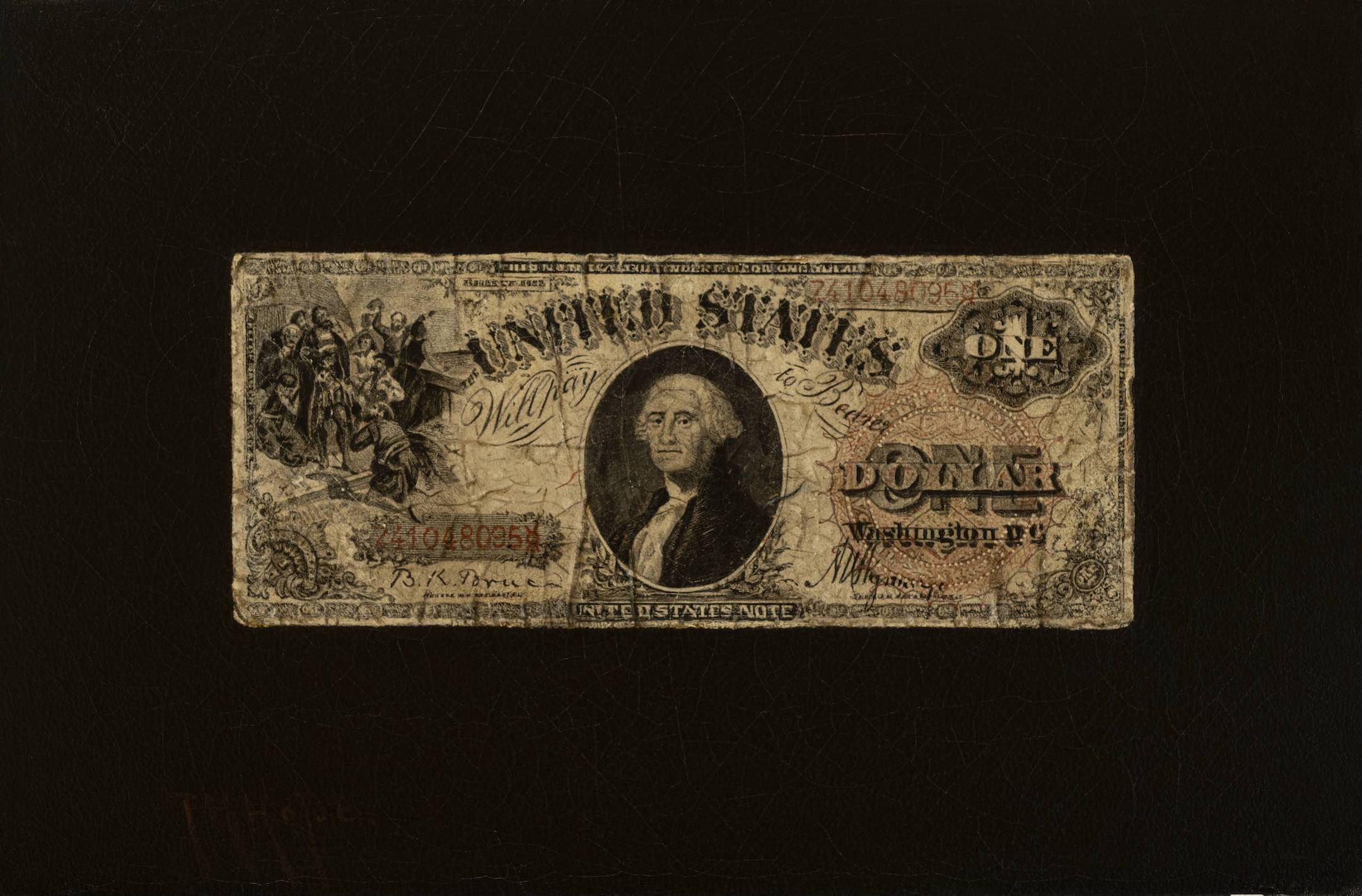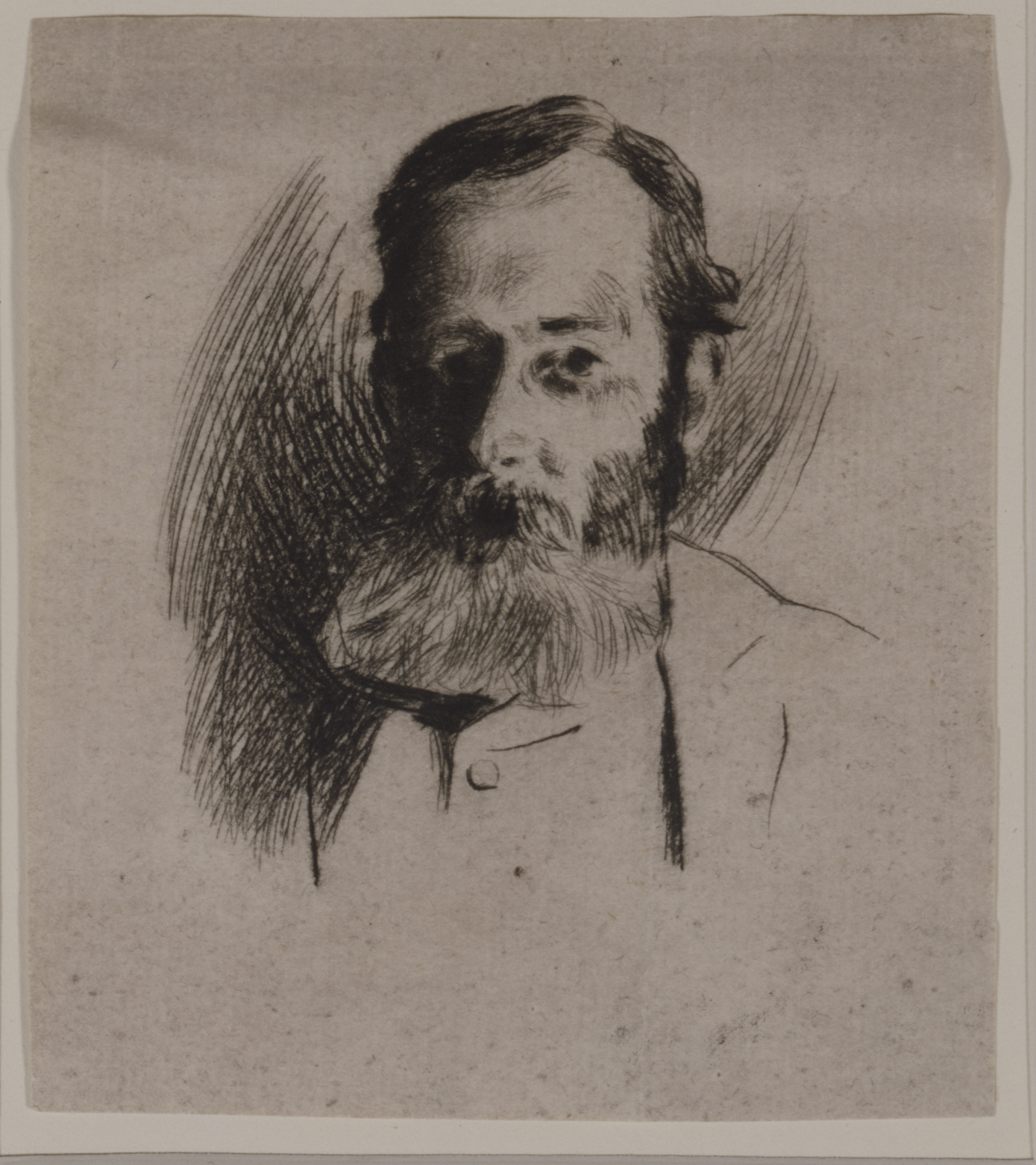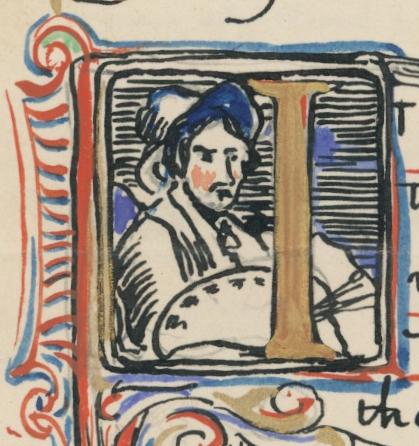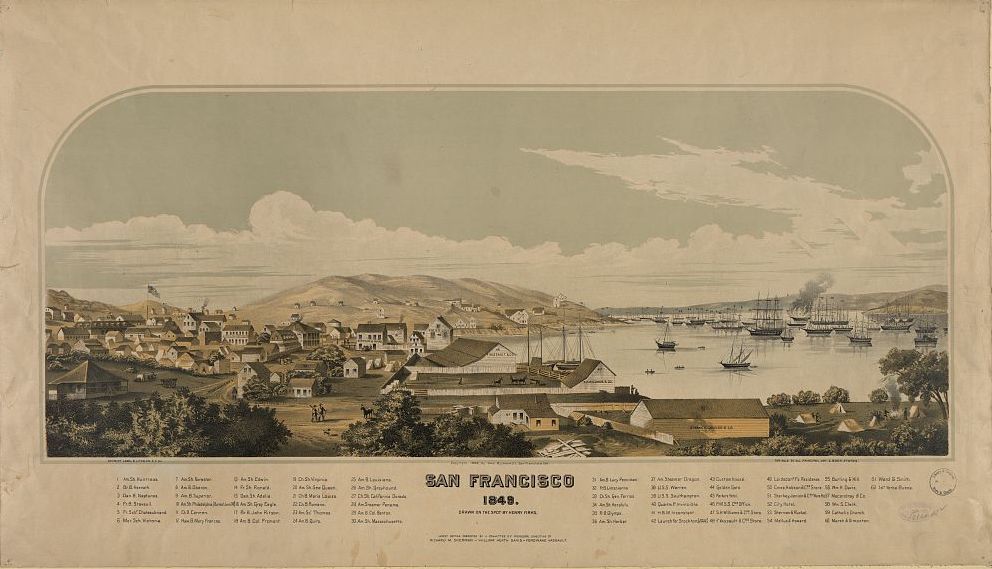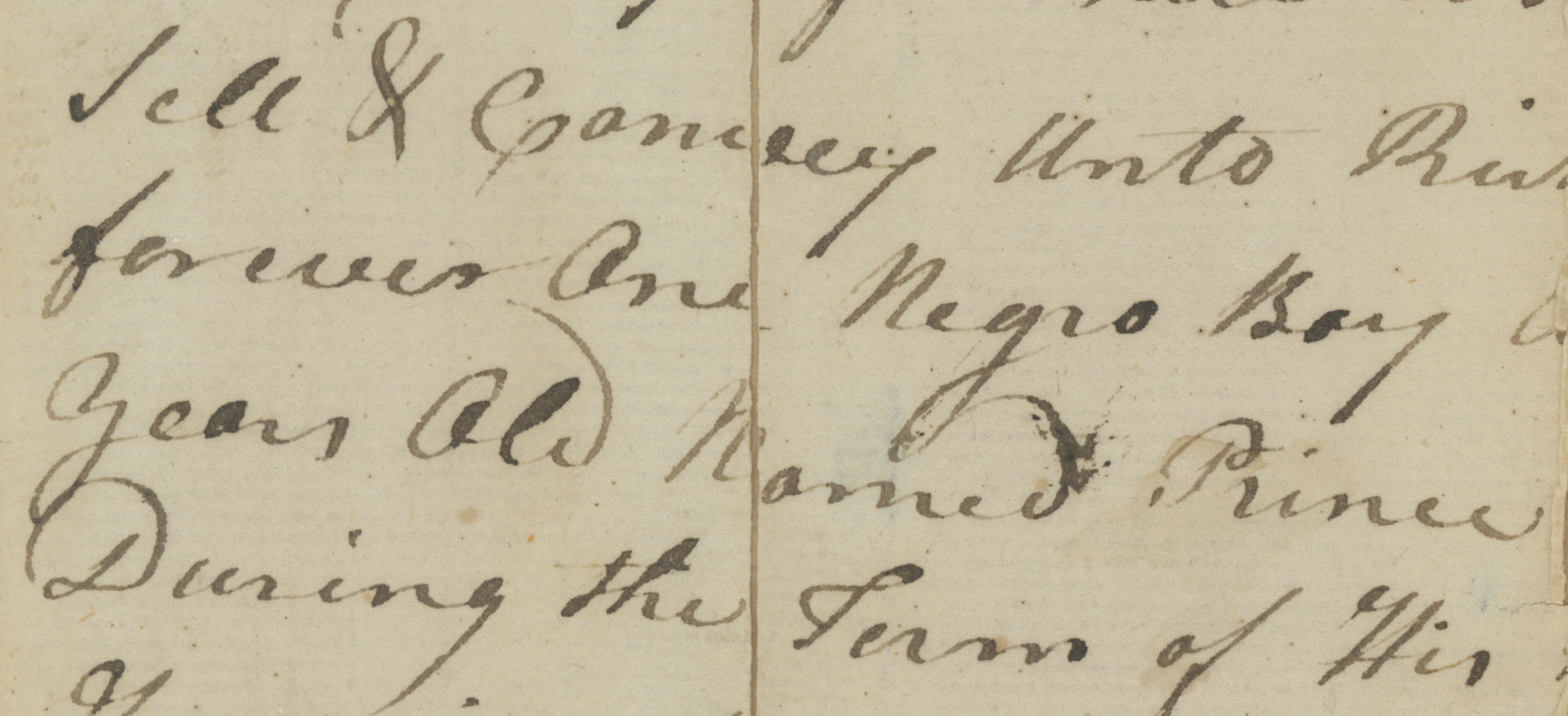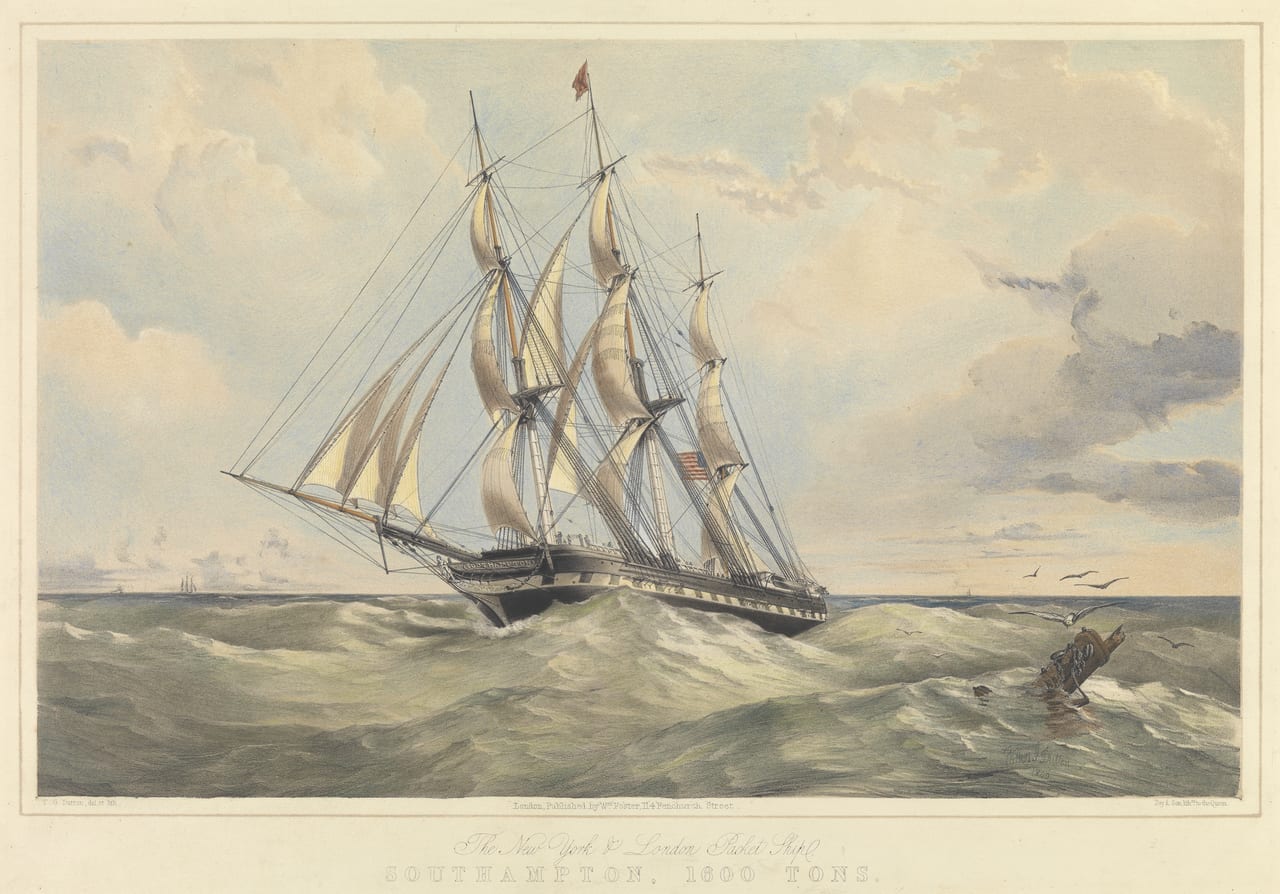
The New York & London Packet Ship Southampton by Dutton-Thomas Goldsworth PY0612
By Charles Beal
Feature Photo: [above] The New York and London Packet Ship Southampton 1600 Tons, courtesy of National Maritime Museum, Greenwich, London
Florence Griswold’s father Captain Robert Harper Griswold was a packet ship captain who made three round-trip voyages a year from New York to London. In October 1849 he set sail in the Southampton, a ship of the Black X Line, carrying some 30 cabin-class passengers, among them the emerging American novelist Herman Melville.
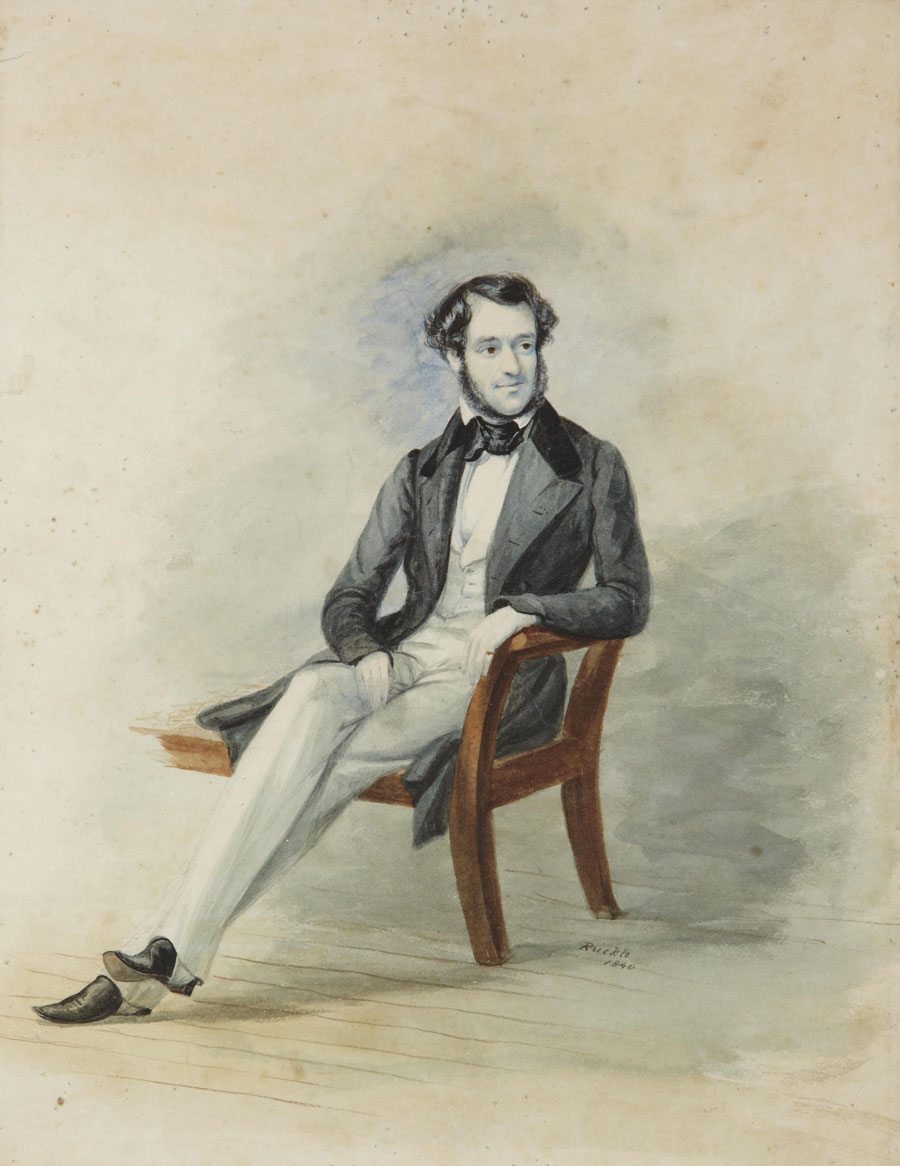
Thomas Coke Ruckle, Captain Robert Harper Griswold, 1840. Watercolor on paper. FGM. Gift of Dr. Matthew Griswold.
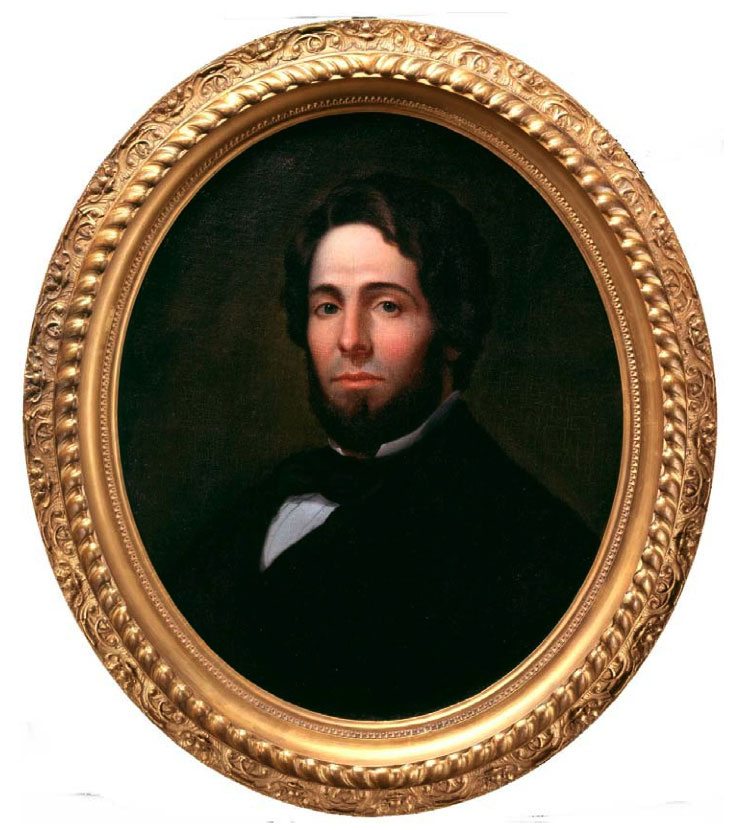
Asa Twitchell, Herman Melville, ca. 1847. Courtesy Berkshire Athenaeum.
Melville kept a daily journal that recorded in great detail his experiences during the Atlantic crossing. He was on his way to London to arrange a publication deal, including an advance for his book White Jacket, published the following year. In 1851 he would publish his masterpiece Moby Dick, based loosely on the actual sinking of the Nantucket whaling ship Essex by a whale in 1820.
The voyage on the Southampton was preceded by three to four days of waiting in New York harbor for the weather to improve. Passengers then boarded the ship and moved down the Hudson River through the narrows between Brooklyn and Staten Island. By late afternoon they had lost sight of land. For the first few days those who were not seasick in their cabins occupied themselves by walking the deck and getting adjusted to life at sea. Melville noted that a deranged man jumped overboard, refused to be saved, and drowned, and that the captain said he was aware of several cases of people jumping overboard. The following day Melville remarked on an unfortunate person seen walking unsteadily on deck, described as an Englishman afflicted with delirium tremens.
After a week the weather turned warm and sunny, and everyone was in lively spirits, including the ladies and the Captain. Passengers played shuffleboard on the quarter deck, the ladies promenaded with the men, and in the evenings there were concerts by an Irish lady, thought to be an opera singer, who played the guitar and sang. There were also evening parties in the ladies’ saloon, described as “guilt and brilliant,” with the opera singer providing the entertainment and party-goers consuming plentiful alcohol.
As the ship neared the Newfoundland Banks, it was running at high speed and everyone was in high spirits, impressed by the ship’s progress. The Southampton had been sailing for 15 days when a ship was sighted that proved to be a Yankee, which caused much excitement. Captain Griswold joined in games of shuffleboard and whist, and people talked excitedly about reaching London. When several land birds landed on deck, some believed they were halfway to their destination.
The Southampton continued to make good progress. Sightings of more land birds and several ships combined with good food and much wine put passengers in a cheerful humor. When the ship was three weeks from New York and well up the English Channel with many other vessels in sight, the captain again joined in social activities. Early in the morning a few days later, Melville and a few others were ferried to shore at Deal, a town on the English Channel north east of Dover. Deal is historically significant as a place near Walmer where, centuries earlier, Julius Caesar may have first come ashore and taken possession, and at one time Deal was the busiest port in England.
Melville and his group walked to Canterbury and did some sight-seeing before attending a local theatre and spending the night at a shabby inn. The next day the group took a train to London, a distance of 80 miles. The Southampton with most of the passengers arrived the following day. After recovering their luggage, they passed through customs, a daunting process, then dispersed to their local accommodations. The voyage had taken 26 days.
Further information about Captain Griswold may be found in the blog article Profile: Robert Harper Griswold (1806 – 1882)

